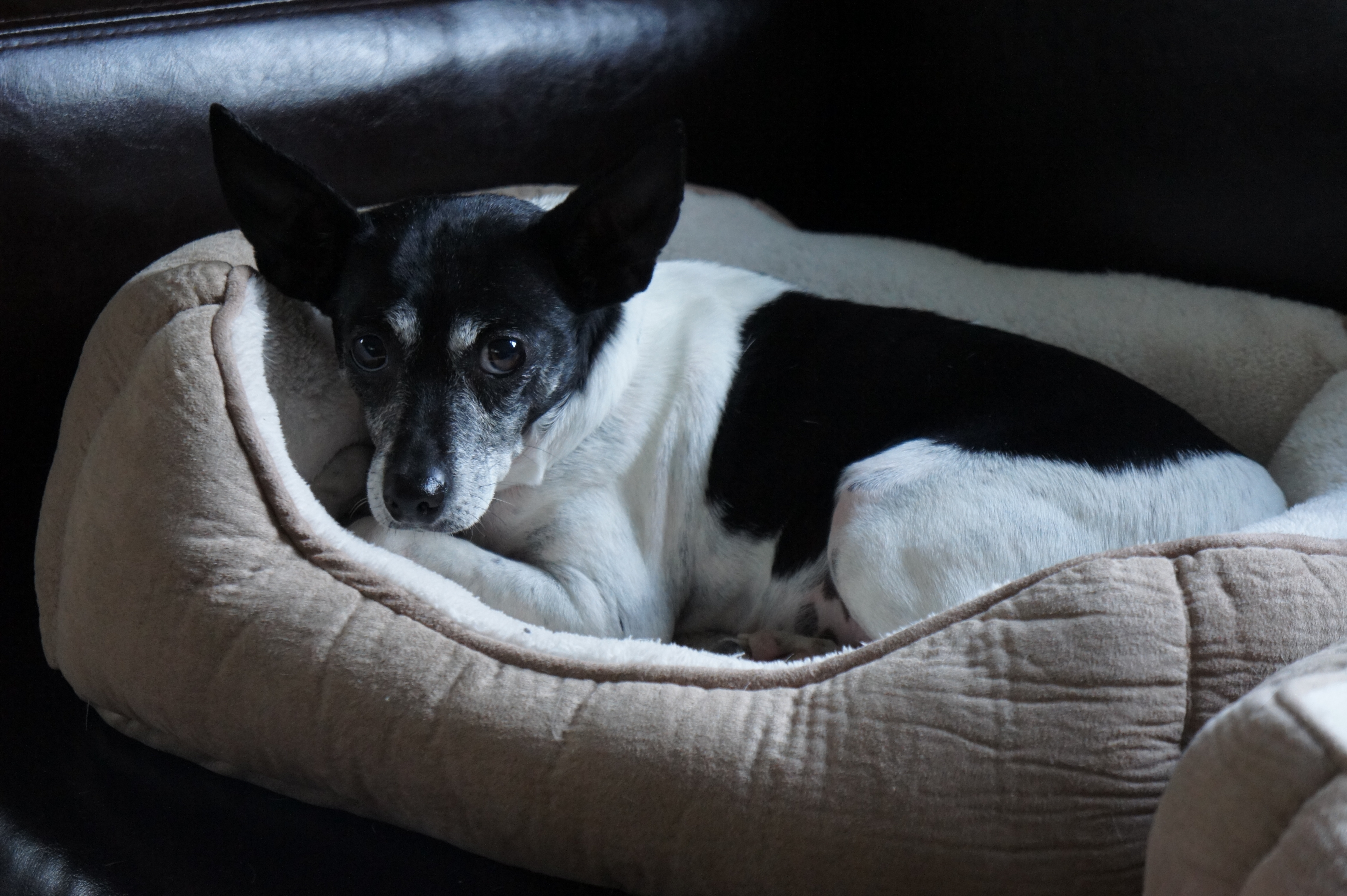About 6 months ago Di and I rescued a 7 year old puppy mill mom named Foxy. She had spent her entire life mistreated, neglected and abused as her body was used as a factory. Not surprising, she has a deep mistrust towards humans, and an even deeper mistrust towards male humans. We decided to give her a better life and although we knew it would take some time for her to feel comfortable again, we were ready to do the hard work.
She is still so fearful of us that she cannot be trained as she backs away from any situation where she is the focus of attention. Her anxiety overwhelms her to the point where she physically shakes when people come near, she won't eat near us because she has to let her guard down for a second, she becomes paralyzed with fear when we have to pick her up to get her in the car. She has even placed giant puncture wounds in my hands from time to time. We understand that it takes time, but we feel like there should have been a little bit of progress in 6 months so we talked to our veterinarian about it.
The veterinarian concluded that Foxy has this huge wall of fear and anxiety that is preventing her from opening up at all. Because this wall is controlling her, it is not letting anything good that we do for her in, and not allowing her to build trust with us. Because of this, the veterinarian recommended something to us that she rarely does: Prozac. We agreed to a 1-month trial and started a few weeks back.
We haven't really noticed any improvement and in fact, she often seems more scared and anxious around us. So you might be asking, "Why is your fearful dog being put on an anti-depressant to cure anxiety anyway?" and with a future doctor in the house, of course we had some curiosity behind the reasoning, and some concern with the effects it has been having on Foxy. It turns out that anti-depressants work in a pretty interesting way.
Without going into the deep science of it (Di can in a comment if she wishes), one of the theories behind how Prozac and other anti-depressants work is through desensitization. The basic theory is that it initially raises your anxiety levels such that you become more anxious about the same things! Over time, you become desensitized to this anxiety because it is omnipresent, and thus, the threshold for what levels of anxiety you feel comfortable with are increased. With Foxy being able to handle a bit more anxiety comfortably, this will eventually allow her to trust us just a little, and the theory is that if we can get our metaphorical foot in the door, that she will realize that we are on her side and continue to warm up to us. Of course, this desensitization takes some time to kick in and that is why after 2 weeks we are seeing increased levels of anxiety and what seems like regress with Foxy, when actually it is working just as planned.
I am not a huge fan of medicating children and pets for behavioral issues unless absolutely necessary, but I think that in this case we are making the right decision to help Foxy live a happier life as she transitions from the puppy mill to a loving family.


Comments